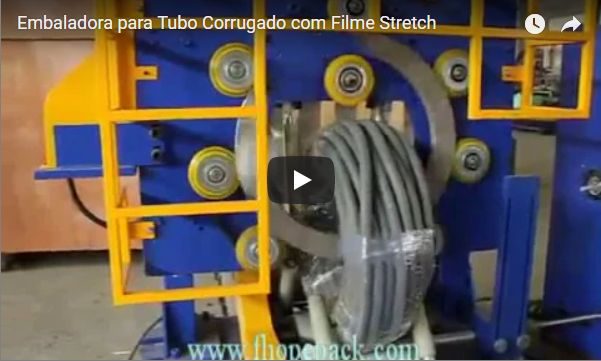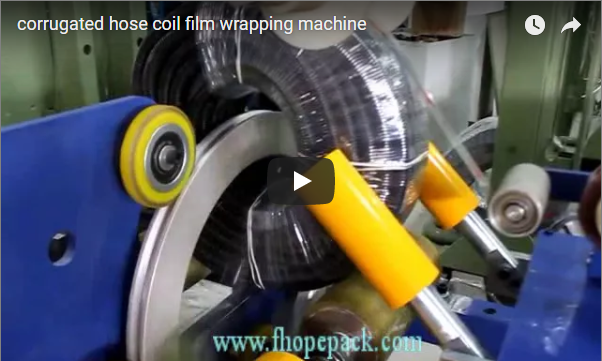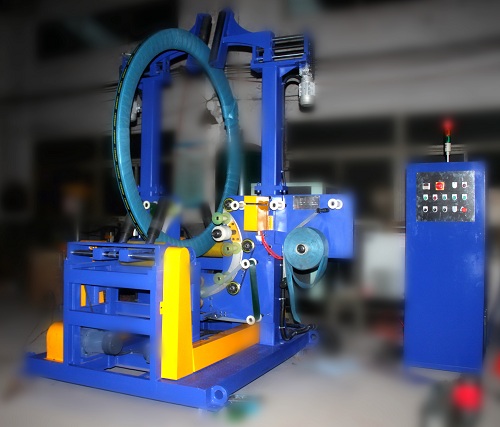Enhancing Bearing Longevity and Logistics: Automated VCI and Stretch Film Packaging Solutions
The integrity and performance of industrial bearings are critical assets in countless applications, from automotive manufacturing to heavy machinery. Protecting these components from corrosion and physical damage during storage and transit is paramount. Automated packaging systems integrating Volatile Corrosion Inhibitor (VCI) technology with stretch film wrapping offer a robust solution, significantly improving efficiency and ensuring product quality upon arrival.
The Science of VCI Protection for Bearings
Volatile Corrosion Inhibitors (VCI) represent a cornerstone technology in metal preservation. VCI compounds embedded within packaging materials, such as paper or film, vaporize within the enclosed space. These vapors form a thin, protective molecular layer on the surface of the metal components, effectively inhibiting the electrochemical processes that lead to corrosion.
- Mechanism: VCI molecules adsorb onto the metal surface, creating a barrier that passivates the metal against corrosive agents like moisture and oxygen.
- Effectiveness: Proven protection for both ferrous and non-ferrous metals commonly used in bearing manufacturing. Research indicates VCI can significantly extend the shelf life of sensitive metal parts, often complying with standards like MIL-PRF-22019 for corrosion prevention.
- Application: Integrating VCI film application directly into the automated packaging line ensures immediate and consistent protection commencement.
Orbital Stretch Wrapping Technology
Complementing VCI protection, automated orbital stretch wrapping provides a secure physical barrier and enhances package stability. This process typically utilizes Linear Low-Density Polyethylene (LLDPE) stretch film.

- Process: The bearing passes through a rotating ring carrying the stretch film roll, which orbits around the product, applying overlapping layers of film.
- Pre-stretch: Modern systems incorporate powered pre-stretch mechanisms, elongating the film before application. This significantly increases film yield (reducing material consumption often by 50-75% compared to manual wrapping) and enhances load containment force for superior package integrity. Patent literature frequently details advancements in pre-stretch roller configurations and tension control systems for optimal film usage (e.g., US Patent 6,543,201 B2 discusses stretch wrapping apparatus improvements).
- Synergy with VCI: The tightly wrapped stretch film layer effectively seals the VCI vapors within the package, maximizing their protective effect while also shielding the bearing from dust, dirt, and moisture ingress.
FHOPE Bearing Packaging System: Operational Overview
The system demonstrated showcases the seamless integration of these technologies. Bearings are automatically fed into the wrapping station where VCI film can be applied, followed immediately by the orbital stretch wrapping process.
Key Technical Specifications (Typical Parameters)
- Bearing Outer Diameter (OD) Range: 100 mm – 600 mm (customizable)
- Bearing Width Range: 20 mm – 200 mm (customizable)
- Wrapping Materials: VCI Film, LLDPE Stretch Film (various thicknesses)
- Control System: PLC with HMI Touchscreen Interface (e.g., Siemens, Allen-Bradley)
- Wrapping Speed: Variable, up to 4 cycles/minute (dependent on bearing dimensions and wrap configuration)
- Film Pre-stretch Ratio: Adjustable, typically up to 250% or higher
- Power Requirements: 380V/50Hz/3Ph (or specified)
Core Advantages of Automated Integration
- Superior Corrosion Protection: Multi-layered defense combining VCI chemical inhibition and physical stretch film barrier. Studies published in journals like Materials Performance often highlight the efficacy of combined protective methods.
- Optimized Material Consumption: Precise control and high pre-stretch significantly reduce VCI film and stretch film usage compared to manual methods.
- Increased Packaging Throughput: Automation dramatically accelerates the packaging process, boosting overall production line efficiency. Throughput gains can often exceed 300% versus manual packing.
- Consistent & Professional Packaging: Delivers uniform, tightly wrapped packages with a clean appearance, enhancing brand perception and ensuring load security.
- Reduced Labor Costs & Enhanced Safety: Minimizes manual handling requirements and associated ergonomic risks.
- Operational Simplicity: User-friendly HMI allows for easy parameter adjustments and operation monitoring.
- Compact Footprint: Designed for efficient use of factory floor space.
Industrial Applications and Impact
Automated VCI and stretch film wrapping systems are invaluable across various sectors:
- Automotive: Protecting wheel bearings, transmission components, and engine parts.
- Industrial Machinery: Ensuring the readiness of bearings for pumps, motors, gearboxes, and heavy equipment.
- Aerospace: Critical protection for high-precision bearings used in aircraft and related systems.
- Renewable Energy: Safeguarding large-diameter bearings used in wind turbines.
The adoption of such technology directly contributes to reduced scrap rates due to corrosion or transit damage, lower warranty claims, and improved supply chain reliability.
FHOPE: Partnering in Advanced Packaging Solutions
FHOPE specializes in the design, manufacturing, and implementation of automated wrapping and packaging machinery. By collaborating closely with clients, FHOPE develops tailored solutions, like the bearing packer shown, that address specific industry challenges and enhance operational efficiency.
For more coil packing machine solutions and insights into advanced packaging technologies, explore our comprehensive offerings.
Conclusion
Automated bearing packaging systems integrating VCI and stretch film technologies represent a significant advancement over traditional methods. They offer unparalleled protection against corrosion and physical damage while delivering substantial improvements in efficiency, material economy, and package consistency. As industries demand higher quality standards and logistical optimization, these solutions are becoming increasingly essential for safeguarding valuable bearing assets throughout the supply chain.






